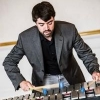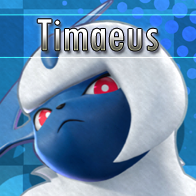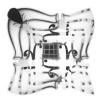Leaderboard
Popular Content
Showing content with the highest reputation on 06/27/2016 in all areas
-

Sonic 2 - Mystic Cave Zone (Funk Cave)
YoungProdigy and 2 others reacted to DrumUltimA for a topic
Hey guys! Just uploaded a music video of my Mystic Cave Zone arrangement. I actually posted wips of this here like, 7 years ago lol. Got a ton of badasses to play on it--hope you enjoy!3 points -

Super Audio Cart: The definitive chiptune instrument, available now from ISW & OCR!
TheChargingRhino and 2 others reacted to zircon for a topic
I extended it just a little longer!3 points -
Overwatch
Garpocalypse reacted to Nutritious for a topic
So my brother just gave me his extra Overwatch account and I'm just getting into the game. Other than him walking me through 3 or so of the characters, I don't know much about what heroes to choose for which maps and situations and what not. I'm liking Hanzo because I was a big fan of the huntsman in TF2, so that's a natural fit. I like Lucio as well, though his damage output is unfortunately/understandably super low. The biggest problem I'm having right now is that he was and is (with his main account) playing with a lot of competitive-level players, so the MMR on this is absurdly high. I guess if I lose enough it'll eventually come down to a reasonable level. It makes it difficult, though, to try new characters I know nothing about since the competition is pretty cutthroat. Anyway, I'll try to get my battle tags posted in case anyone wants to play, though I'm pretty much only on late and not for a huge amount of time.1 point -

What's your approach for doing VGM arrangement ?
hleet_tahiti reacted to timaeus222 for a topic
These days, what I do is listen to the original songs for a few days to a few weeks, until I naturally internalize them. There comes a point where I'm then able to hum to them, and so I come up with some ideas before going into FL Studio. At that point, if I feel pretty good and think I can finish a remix of the VGM I was listening to, I give it a shot. Generally, when I actually start writing... I start by selecting an instrument/sound that is the basis for my soundscape. I build my remix from beginning to end, mixing as I go and layering my soundscape as I go. I usually write the melody first, then hum the bass line, and then fill in the chords. I listen to the melody, and it implies one or more bass lines that can work. Once I write in my bass line, it pretty much flows from there. Bass lines outline chord progressions when paired with a melody, so I basically hear the chords I want to write once I have both down. I'm always open to going back and adjusting parts of my remix that I wrote in the past, even if I've already progressed to writing the latter half of it, and I usually do that. In fact, that's what I think gives my mixes the polish I think they need---the will to go back and revise older partwriting, mixing, etc, and the desire for improving the mix until I have no crits towards myself (even if it's a few months later). Here's an example where I did exactly what I said above. Maybe you can find the differences, and track when I went back and adjusted older partwriting/mixing (it's usually near the end of the current WIP, but it might be in the middle). Sometimes I add transitions, sometimes I add new parts, and sometimes I refine the mixing. V1 - https://dl.dropboxusercontent.com/u/59338379/PSMDWIPV1.mp3 V1.2 - https://dl.dropboxusercontent.com/u/59338379/PSMDWIPV1-2.mp3 V2.1 - https://dl.dropboxusercontent.com/u/59338379/PSMDWIPV2-1.mp3 V2.2 - https://dl.dropboxusercontent.com/u/59338379/PSMDWIPV2-2.mp3 V3 - https://dl.dropboxusercontent.com/u/59338379/PSMDWIPV3.mp3 Final - https://dl.dropboxusercontent.com/u/59338379/PSMD - 'CONNECTED!' [Revelation Mountain%2C Tree of Life (Roots)%2C Final Fight (PMD2)].mp3 ----- As for your second question, I usually have WIPs lying around to keep me busy. Right now I have 5 ReMix WIPs, and 4 original WIPs. Darn it, I had less last year!1 point -
I start with my brain and pen and paper mostly. That doesn't mean I start writing score from the get go, it means that I listen to the source track a few times, let that inspire me to get some ideas on what kind of style, genre, mood I want to achieve and I write those down on paper. In the next day or 2, I think about it some more and write some more stuff down. What I write down can be pretty broad, here's some stuff from a track I worked on a week ago: "vocal track. start slow with piano and vox. add strings. first part should be calm and reflective in minor key, second half should be more optimistic, higher speed in major key. use traditional verse-chorus structure. use accordeon in second half. add violin solo somewhere.". So basically it gives me a blueprint of ideas on what I want to do with the track, and in combination with the source material I can steal the melody from that and incorporate that into my blueprint. With that input I start the arrangement, usually in 1 or 2 iterations to get all the concepts and ideas down. Instruments in this phase are pretty rough usually, mostly ballpark of the kind of sounds I have in mind. Tweaking and polishing things a bit is next, that can be things like adding harmonies, fixing timings, choosing better instruments and humanising the performance. Last step for me is mixing and overall production. This is typically where my skills aren't as good and thus it takes the most time and self doubt As for your second question: I typically have a few tracks in progress most of the times (atm I count 8, yikes!). A good reason for that is that I like to collaborate with other people to get some live performances in, and that usually involves a lot of waiting for people to find time to record. I typically fill up that time with working on other/new tracks.1 point
-

What's your approach for doing VGM arrangement ?
InfernoZN reacted to Garpocalypse for a topic
When i first started using a DAW i used to spend a solid month per remix/rearrangement getting everything together. I would load up an instrument, play around with it and if nothing came to mind, delete and load up something else. It's a fine way to experiment and discover new applications for the resources you have but I found that it tended to kill the spirit of what I was working on long before I finished it. To spit music out quickly it's a great idea to make a bare outline of what you want, break it down into music's three core components which are melody, harmony and rhythm, use a vst that runs light on you pc/mac and doesn't make the entire project so cumbersome that it discourages you from making simple changes. I treat most of my outlines as simple high school piano renditions of what i want and develop them from there. Usually I will also keep melodies and harmonies in separate midi tracks just for the extra layer of organization. After the outline is more or less done I develop the rest of the arrangement starting with the rhythm section and ending with the lead instruments. Keep in mind that writing (coming up with the piece of music), arranging(deciding what instruments should be used and how), and mixing(how the frequencies of everything fit together) were all once (and still are) separate skills to learn. Now the lines are blurring and everything is becoming more and more inclusive. Which is great but it means there is a lot of information that needs to be learned and you are going to be learning it all at the same time. Because of this, it's important to recognize that there are different skills that are needed depending on what phase you are at when writing a piece from start to finish. If the harmony doesn't create the proper mood for the melody, it doesn't matter how much compression you use on that cello sample that you have programmed as playing all up-bows, It's still not going to sound right. If you keep your outline as simple as possible then you can get your idea out much faster and with fewer obstacles. When artist makes an image, they don't worry about properly shadowing the reflection in the window just right when the rest of the canvas is still blank. They do a quick sketch of what it's supposed to be then spend significantly more time developing it. It's the same deal with music. Sort of went off there but hope it helps! I still remember well the frustrations i had when i first started working with a DAW but it all lead to me developing a process I can use as a base to approach anything i want to now.1 point -

rRPC 2016 - The ReMix Role-Playing Competition 2016
FenixDown reacted to Touchstone for a topic
Nice! I recently fell in love with Bravely Default's soundtrack, so this should be really fun!1 point -
Oh HELL yes - This is going to be an epic round!1 point
-

Sonic 2 - Mystic Cave Zone (Funk Cave)
Garpocalypse reacted to Gario for a topic
What the heck is that lead synthetic? Electric sax? Awesome.1 point -
Final Fantasy XV
Garpocalypse reacted to Brandon Strader for a topic
Sean Bean is only in the movie, although as for whether the character dies in the game, well that is getting into spoiler territory I'm not sure anyone would be too fond of. But it's a different actor from what I've heard -- actually I think the character in the movie and game is modeled after a completely different actor, possibly the one who does the voice for the game, I'm not sure. They changed Noctis's dad design at some point from what it used to be. Sean Bean lived in that Silent Hill movie. I was amazed. Also totally not pointing out that it's a different voice actor in the game to unkindle your interest, you should be interested though, in the movie and the game. It's going to be amazing and we only have 3 months left to wait. Also the difference between movie Luna and game Luna is pretty jarring. Look into that stuff. There's big differences between the 2. Also the movie features stuff like the Leviathan scene from E3 2013 that won't be in the game anymore.1 point -

The Legend of Zelda: Breath of the Wild
Geoffrey Taucer reacted to The Damned for a topic
I want to say that's sarcastic, but knowing your post history, I think it might be a serious statement.1 point -

The Legend of Zelda: Breath of the Wild
Geoffrey Taucer reacted to Bleck for a topic
nobody should talk about the things I don't like1 point -

The Legend of Zelda: Breath of the Wild
Geoffrey Taucer reacted to Slimy for a topic
It looks like the logical next incarnation of Legend of Zelda, if it let itself be penetrated by modern trends, rather just just remaking OoT or ALttP again.1 point -
What is the easiest VGM to transcribe?
hleet_tahiti reacted to mikurotoro for a topic
Thanks for all the help I really appreciate it!1 point -

What is the easiest VGM to transcribe?
hleet_tahiti reacted to AngelCityOutlaw for a topic
To be honest, if you're a total n00b at transcribing, you're unlikely to successfully transcribe even a "simple" song in a short amount of time as your sense of relative pitch is yet weak. If you do successfully do it, it will be because of trial and error and memorization rather than truly developing your sense of pitch. If any suggestion we could give you were "easy" to transcribe, you would already know it. So I would say focus on scales, harmonies, intervals, listening to lots of music and trying here and there to figure out a melody from a song everyone knows and you're very used to hearing - like Jingle Bells. Eventually, as you become more consciously aware of the intervals as you listen to music, you'll be able to play back most of what you hear without too much effort or uncertainty as long you have a reference pitch and a decent recording. Even then, "easy" is very subjective. For example, I consider this song easy to figure out by ear, but another guitar player I know couldn't figure it out because the key changes throw him off. Unlike me though, he was able to figure out this guitar solo on pretty much the first go.1 point -

How do you get over fear of failure?
hleet_tahiti reacted to dannthr for a topic
Failure and success are part of a personal journey--and music and art are pursuits that demand a lifetime to master. If your goals online are to expose and reveal this personal journey, then put it all out there and be sincere about it. If your goals online are to present yourself as a viable contractor or enterprise, shape your presentation to demonstrate the best of your skill. Michelangelo burned all of his practice sketches because he knew people would only believe in his genius if they only saw his polished works.1 point -

How do you get over fear of failure?
hleet_tahiti reacted to Kanthos for a topic
You might also find new appreciation for your own work once you share it with others. I've started a jazz/funk band and have never really tried writing original music before now, but the other members have appreciated the songs I've written sometimes more than I have, and sometimes, seeing how they like one of my tunes has made me like it even more.1 point -

Finding myself too dependant of "real instruments"
hleet_tahiti reacted to Nabeel Ansari for a topic
I find it silly to consider going from orchestral to electronic as musically "growing up". Electronic music doesn't require a fraction of the work, training, and thought that orchestral writing (and production) does.1 point -

Finding myself too dependant of "real instruments"
hleet_tahiti reacted to timaeus222 for a topic
YMMV, but just going to elaborate on some of this with my own thoughts/perspective. I agree that arrangement and orchestration is a great skill. What I think is that the difficulties of traditional orchestral soundscapes, specifically, lie in not the textural diversity of the instruments (because of the more-or-less set structure of the orchestra after its development over the years), but the complex compositional layering. Sometimes you may hear talk about a "wall of sound", which is this idea of complex layering that makes it sound like a large portion of the orchestra is working like a single "unit" to sound big. That contributes greatly to the "completeness" of an orchestral soundscape. You also tend to use cohesive reverb on many instruments so they sound like they're in the same room, meaning few variations on reverb qualities should be apparent and the reverb isn't excessively washy necessarily, so rather than depending on reverb nearly as much to fill in the soundscape as in some electronic arrangements, you depend more on adding particular instruments to fill particular roles to fill in the soundscape. Because of the more-or-less set structure of an orchestra, you have fewer choices to pick from. In terms of arrangement, well, there is the fact that each orchestral instrument is designed to play in a certain way; you can try to bow a regular woodwind or blow on a regular string instrument, but it won't sound conventional. There are more ways you can play synthesized instruments (which don't have physical restrictions necessarily), and they don't usually have as restrictive pitch ranges or as particular playing techniques as orchestral instruments do. As a result, in order to really make impressive arrangements, you have to understand the intricacies of (1) what playing techniques are possible for particular instruments (is it possible for anyone in real life, ever?) (2) which are natural for live players of particular skill levels to do (would they do it in real life? Could they succeed?), and (3) which sound better than others in context, purely in reference to the song itself. That doesn't yet include the chords, melodies, expression controls, and so on that you could do. That overall, IMO, is much harder than finding the right sound to fit into your electronic soundscape and writing the most suitable chords, melodic contours, and expression controls for your synths.1 point -

Finding myself too dependant of "real instruments"
hleet_tahiti reacted to AngelCityOutlaw for a topic
I'm going to offer a much different perspective - Honestly, I find it weird that you consider abandoning orchestral music to be musically "growing up" when command of an orchestra in both the real deal and sequenced is a coveted skill. Not to mention, the orchestra is the most versatile ensemble there is. With just the strings alone, you can write a piece evoking any kind of texture or emotion you can think of without actually having to change or rebuild the timbre of the instruments completely like you'd probably have to with a synth - depending on what you're going for. My thoughts are that instead, you should stick to classical for the moment, but start making hybrid scores. Start integrating synths in your work - maybe take an older piece of yours and try arranging it to incorporate a synth bass or something. This way, the process of learning how to use them will feel much more "organic", if I might dust off the hipster music terms, to you than just throwing yourself completely into uncharted territory and saying "Okay, I used to write symphonies, but now I'm gonna do an acid-breakbeat track that will put the Crystal Method to shame." Eventually, you'll go from "classical with synth elements" to "electronic with some classical elements" and then inevitably "full on electronica". I started by using synths in rock music and that made learning how to do other, completely electronic genres much easier - Worked for me, anyway. EDIT: Though to be fair, when you do get to the stage of purely electronic, you'll realize that the composition of many electronic tunes of the EDM variety are a lot more "bare-bones" than orchestral. Usually, there's not much in the way of melody and the structure often follows this "build-up and breakdown" idea, adding more layers of synths and effects until it breaks down and starts again, rather than a verse-chorus kind of thing (unless there are vocals). An example, is if you listen to something like "Now Is The Time", it's pretty much the same shit over and over, but each time it repeats, it re-introduces the elements in a different order and a lot of the "leads" are more like synth-sound effects. This isn't to say you can't do more melodic stuff like what Zircon and a lot of VGM composers do, but I know I ran into the problem of my songs just sounding "wrong" compared to what I was going for and this was the most obvious thing I was over-looking.1 point -

Finding myself too dependant of "real instruments"
hleet_tahiti reacted to Garpocalypse for a topic
Sounds to me like you are relying on the humanization inherent in sample libraries and don't really understand how to replicate that in a midi file for a synth. Get really familiar with the midi tools in your DAW and also learn how to use Midi Continuous Controllers. It takes some careful, slow and repetitive work which is really much more akin to painting sound than playing it but take a passage you think sounds good with your sample libraries and try to replicate the playing down to the smallest detail. It's not going to sound 100% authentic because it's a synth but you can at least get close to all of those details that were recorded in the sample library. When I started that was a huge hangup for me. If I couldn't get exactly what I wanted from playing it for a few minutes then I gave up immediately.1 point -

Finding myself too dependant of "real instruments"
hleet_tahiti reacted to Rozovian for a topic
Challenge yourself. For learning synths, make a song using only presets of actual synths (no samples). Think of all instruments in terms of timbre rather than as synths, samples, or recorded instruments. Read about how different kinds of synthesis works. Create an initialized patch of a relatively easy synth. Experiment with it. Make your own instrument patches for it. Make a song with only original patches. Make a song without any added effects so that all the mixing (eq, levels, reverb) has to be done in the synths themselves, preferably in a synth that doesn't have its own effects so you're just using the filter and envelopes and other principal parts of the synth to mix it. I did stuff like that, and I can now create the kinds of sounds I want. I tend to use FM8 these days for most of my synthesis needs, as it suits my style, but Omnisphere and Logic's built-in synths are just as useful. For freebies, I recommend TAL's synths; Elek7ro II and Noisemaker are versatile but not too complicated. FL should have some built-in synths you can use, too.1 point -

Finding myself too dependant of "real instruments"
hleet_tahiti reacted to Jorito for a topic
I essentially approach my DAW as my instrument and embrace the limitless possibilities it gives. So to me the sky is the limit and any style and genre is possible. Sure, that can make it overwhelming at times, but it also makes you grow if you try to do (your version of) a genre you never tried before. I would personally out with something "hey, what if I create a drum & bass or dubstep track"... or "let's create a reggae track", or "how would this sound as a chiptune?". That makes me want to listen to these genres for inspiration, read a bit about general elements and instrumentation of the genre which helps me learn and grow. I also find that doing competitions here is a good way to learn quickly, with short deadlines and sources that you probably wouldn't have picked yourself. It's a great way to get out of your comfort zone. Heck, since becoming more active on OCR I've done quite a few remixes of games I never played and that really helped expand my horizon. So TL;DR: force yourself to make something in other genres1 point -

Optimizing Your Kontakt Workflow, Part 2 (Spec check, DFD tweaks, CPU, bridging)
hleet_tahiti reacted to zircon for a topic
Part 2 has been published. Read and learn! I've been developing Kontakt instruments for Impact Soundworks since 2008, and using the software since version 1 came out way back in 2002. Now that the plugin has become so widespread, it has more users than ever, but many people are unaware of some simple (yet powerful) features & functions to help improve their workflow. So, I've decided to write a series of articles on the topic! Part 1 starts with how to properly organize & load instruments. This sounds fairly basic, but you would be surprised how many emails we get from people who aren't sure of how to best do this. http://impactsoundworks.com/optimizing-your-kontakt-workflow-part-1/ Part 2 discusses how CPU, RAM, HD & audio interface affect Kontakt performance, and covers tips for tweaking/hacking DFD settings, CPU optimization for multicore, and different bridging options. http://impactsoundworks.com/optimizing-your-kontakt-workflow-part-2/ If there's something you want to see in this series, please let me know!1 point -
How has your process evolved?
hleet_tahiti reacted to mickomoo for a topic
I'm just wondering how everyone goes about making music relative to how they use to in the past. I now play covers by ear so I actually layer track by track, where as I use to work on songs section by section for example, at least more so than I do now. Also the last few songs I've made, I wrote in one or two sittings (I'm not too happy about that because they were in 6-12 hour sittings). I'm also using templates, cross-fading samples, and blending samples more. While my project is more efferent, I'm looking for ways others have improved their efficiency.1 point -
How has your process evolved?
hleet_tahiti reacted to MockingQuantum for a topic
For me, the biggest jump start for my process was being willing to move away from a "do it right" mindset. Everything I tried to do, from writing melody to programming a synth, I'd watch a billion videos or read a hundred articles to find the "right" way of doing that particular task. Going to the experts or learning from these resources is really valid, but it wasn't until I was willing to just give it a shot and do it myself (and make horrible mistakes) that I was able to really internalize a lot of what I was doing. Once I knew what I didn't understand, it became easier to focus my self-teaching/research on that one element of my process.1 point -

How has your process evolved?
hleet_tahiti reacted to Nabeel Ansari for a topic
My mixing process has (d)evolved from: Get inspiration, work on remix for a week or two, getting feedback from my friends like Zircon and Willrock To: Get assigned to do remix for [x] project directed by DarkeSword Procrastinate for months Stay up until 5AM doing mix before due date ??? Done!1 point -

How has your process evolved?
hleet_tahiti reacted to timaeus222 for a topic
I used to pick out sounds before I wrote. Not a good idea necessarily, because it sometimes limits your sound palette and thus, to a smaller extent, your arrangement. For example, if you limit yourself to FM sounds, you've got E. Pianos, dubstep basses, atonal bells, glassy pads, and noise generator percussion at your disposal, and you would then only be able to use those five things plus drums and other things I haven't heard of (it'd be silly to limit yourself to FM without exception). You've got to be missing something in your palette. You see my point. Now, I pick one sound, internalize it, and see if it inspires me to write out something that inspires the picking out of more sounds to go with it. In essence, I pick sounds as I go. Now what about mixing? I used to write and then go back and mix, but the problem is, mixing depends on more than just what you write. It depends a whole lot on how you write it. i.e. The velocities matter, the sound choices matter, etc. Now, I mix as I go, so I can hear things as they are in context, and that way I can decide whether or not particular instruments truly work or if they just add extra content that people wouldn't really hear anyway (for example, trebly percussive ear candy). In improving my efficiency, particularly because I use FL Studio, I took advantage of the visual EQ and connected the visual with the auditory aspect. Once I could visualize frequency distributions, I could EQ more quickly and thus quicken my mixing workflow. I also learned as many shortcut commands as I could, but not by reading a manual; rather, by intuition, because intuition is more memorable than reading, IMO. To internalize is to make familiar by actually doing the activity, so that's what I did. Something else I did to improve how I work was create a bunch of sounds to put into my disposal. If you're filled with a collection of sounds you like, you're bound to find yourself using them a lot, and then once you get used to them, you may start noticing their tonal qualities more, and that's when you start distinguishing which sounds fit better to you in certain situations than others. Then, of course, the most important thing to improve your efficiency, IMO, is to get feedback. The most effective way to improve your objectivity is to get feedback from other people, so you can grasp their perspective and use that to evaluate yourself objectively. When you can judge your own music, you can nitpick it thoroughly and fix it up yourself, and by the time you're done, people from whom you request feedback will have less crits to give---which can be good or bad, depending on how much you liked their crits before!1 point -

Advice Thread for Beginners Use
hleet_tahiti reacted to AngelCityOutlaw for a topic
1. Learn as much about theory and composition as you can and never stop learning it. A well composed piece is always well composed, but a piece with shitty composition and great production is still a shitty track. 2. Do every genre of music. By that I don't mean "I used to do trance, but now I do dubstep!" I mean music that uses completely different ensembles. 3. Learn how to write for specific ensembles/genres. Something that I struggled with and still do from time to time is that you can't treat an orchestra like a rock band and you can't treat synth dominated EDM like it's an orchestra. While the same theory applies, the genres all handle melody, harmony, and rhythm in their own way and that is what truly makes the genres different. 4. Learn to write modal and atonal music as well and learn what kind of style is useful to achieve the sound you want. If you have to make a really dark, evil-sounding piece, your I IV Vs and pentatonic melodies aren't going to get the job done. In that case, writing something based purely on the phrygian mode might work better Those are some thoughts that immediately come to mind.1 point -

Advice Thread for Beginners Use
hleet_tahiti reacted to Esperado for a topic
Strive to make your workflow more efficient. I find it helps you pick up your work easily and be less confused as the songs become more complex. What i mean by this is things like: 1. Have the right tools for the way your mind works. if youre a piano player, get a keyboard for not entry. if youre a synth-head and you find point and click automation to be tiresome, pick up a "block o knobs" type controller. This is arguably something you learn over time, but its worth investing some time into figuring out what works best. 2. make your studio a "no distractions " space. If you dont have a dedicated studio, find a quiet place like a library to work on your mixes in when your home space is too distracting. I often do tracking for my mixes at a coffeeshop. 3. Label all of your channels by what they are (Ex: Main lead, subbass etc...) 4. Put channels with Similar functions next to each other in the mixer/arrangement views of your Daw, and color code them the same. To me , this helps the mix feel less cluttered when i come back to an old mix that i want to update. I dont have to scroll back and forth between the melody and harmony if theyre not on opposing sides of my arrangement view or mixer. color coding helps you quickly identify parts that play similar roles as well 5. It depends on the daw and personal preference, but if you have the option to show all of your automation for a channel alongside of it, do it. having it just show when youre working on the automation works, but just having all your automations shown there when you open a channel helps keep you from forgetting to change automation as well when you move audio bits around. This may not be a deal for everyone though. i use ableton, so i gets annoying to switch automation views all the time. Lastly, Dont go nuts with plugins. if you have a titan of a computer, do whatever you want, but in tune with the organization theme of this post, i find its easier to keep track of sounds and how theyre being affected if i dont have 15 plugins on each channel that i have to keep track of. Its also likely, that youll be less crazy with unnecissary effects bottom line Whenever possible, keep your workflow well organized and labelled, and learn what tools and processes work for you. never settle on something if it doesnt work.1 point -

Let's discuss Workflow
hleet_tahiti reacted to Garpocalypse for a topic
It was a bad habit of mine to listen to something repeatedly while I tried to think of where to take it. This was bad for several reasons but the worst of it was that once you have listened to it over and over again your mind would have adapted to hearing it and you would be less inclined to make the necessary changes and anything new wouldn't sound right. My new method for getting out an idea is to blast out entire sections at a time as soon as I know what I want. Then, when I hit a block, go back and fix/articulate until I get something more. Like one of my instructors said, you can't be worried about one spot on a window when you still have your entire room to clean.1 point -

Let's discuss Workflow
hleet_tahiti reacted to dannthr for a topic
So, for me, the way I usually work is I get some sort of spec detailing the kind of music I have to write. Detailing is an exaggerated term as some specs are pretty stripped down--sometimes it's like "forest music, needs to sound foresty." Sometimes it'll be overly specific and they'll reference some pop song from the 1970s but want it to fit in the context of the orchestral palette that has already been established in the game. Whatever the spec, I will spend a lot of time just listening to that kind of music. Analyzing instruments, statements, form, playing style, mix, etc. Sometimes I'll do this as I'm discussing the spec with the client, sometimes I'll do it while I put together a new template or adapt an existing one, but I always do it. I try to immerse myself into a certain kind of music to prepare me for writing, so to speak, and I try to do as much of that kind of music as possible so I don't get a certain theme stuck in my head or anything like that. Then I'll try to knock out some ideas sketching, piano or some kind of strings pad, etc. If I get stuck, I take a break--I'll work out, I'll take a walk, take a shower, whatever I can do to isolate myself and just think or blank out for a bit. Something to get the blood flowing through the head. When I'm in the zone, I'll stay with it, I'll try not to leave for any reason. You don't want to break the zone. When I have a sketch I think is good or I get to the point in my sketch where I have such a distinct idea of what the orchestration will sound like that I might as well be writing it out with those instruments, I will start arranging it out as I write. So most of my sketches stop once I have that idea or are only improvised meditations around a single theme because once I have the idea in my head on how to branch out or expand on a theme, I just start doing it proper. Again, if I get stuck.... It is not uncommon for me to have a false start. Sometimes I'll get half a minute to a minute in and hate everything I've done, and start over. Sometimes this is good, sometimes it's not, I think this happens more often when I have less developed sketches to start out with (the implementation then becomes a sketch where I've started to discard ideas). Usually, I try to bring the client in on the progress as I go to avoid rewrites, but sometimes it's not avoidable (like I said, I don't stop when I'm in the zone, and I will sometimes nearly finish a track before my client has had a chance to hear it). Here are some very old examples of me going from sketch to final product: Wonderland Adventures II "Wonderfalls" Piano Sketch So, there's like a little counter melody playing over the main melody, and while I didn't keep that particular one, I did keep that idea for the final: Wonderland Adventures II "Wonderfalls" At 0:06 is theme A, at 0:48 starts theme B, at 2:00 they play together. Here's an example of a false start, the spec was village music for these creatures called the Kabooms who were friendly little bomb people who lived in island beach huts and stuff. So the client is like, think tropical, and I'm like okay, island music... So I don't have any great ideas at first, and so I just start writing some island music: Kaboom Village False Start Sketch It's like... the cheesiest island music ever. And I'm thinkin', yeah, I need a better idea. The client on the other hand likes it. But I insist on making it better. So I start thinking about this island-y situation, the fact that it's islandy is actually kind of boring when you think of it, it's a cliche'd pastiche, so I was like, well, I can keep touches of the island feel, but the village theme should touch on the people... who are goofy bombs people. So I imagine that these bomb people are only bomb people because they have the tendency to explode. So then an image of a very kooky village appeared in my head, one where little quirky friendly bomb people wander around occasionally exploding. So, I put together a village theme that occasionally explodes, with a ticking sort of build-up, but with the occasional breath of island music. Wonderland Adventures II "Relax, KABOOM!"1 point




